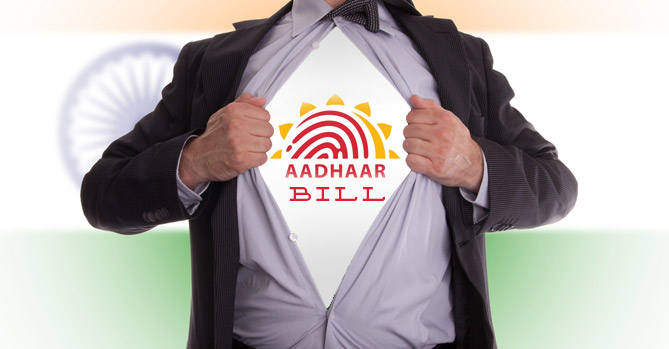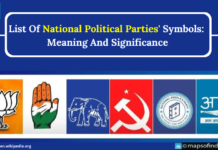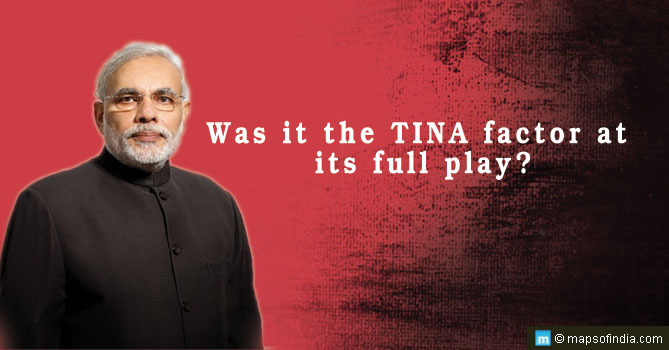Finance Minister Arun Jaitley has been actively pushing for the passage of the Targeted Delivery of Financial and Other Subsidies, Benefits and Services Bill, also known as the Aadhaar Bill 2016, in both Houses of Parliament but has been facing strong opposition from other political parties.
The point of contention is whether the Aadhaar Bill should be classified as a Money Bill. The NDA Government seems to think so and has moved the Bill for passage in both the Upper and Lower House.
Money Bill or not – why should it matter?
The classification as a Money Bill matters to the government in power, as it enjoys a majority in the Lok Sabha but does not have the requisite numbers in Rajya Sabha to ensure a smooth passage.
As per the Constitution, a Money Bill is supposed to have provisions and pertain to all forms of taxes, appropriation of funds and any related financial provision.
Once a Money Bill has been taken up by the Lok Sabha it is then sent to Rajya Sabha where members can discuss the Bill and make suggestions for amendments. It must be noted here that the Rajya Sabha cannot stop or make any changes to the Bill, it can only make recommendations and send the Bill back to Lok Sabha.
It then remains the prerogative of the Speaker of the Lok Sabha to either accept the recommendations or ignore them and proceed with the passage of the Bill.
Therefore, under this provision in the Constitution, the NDA government has declared the Bill as a Money Bill and has sent the Bill to Rajya Sabha, where it does not enjoy the numbers to ensure smooth passage, and is therefore within its right to reject or ignore recommendations made by the Rajya Sabha. Lok Sabha had earlier passed the Aadhaar Bill on 16 March and the Speaker declared the Bill as a Money Bill and sent the same to Rajya Sabha.
If this were not a Money Bill, the same would have to be discussed in Rajya Sabha before going through a vote for passage. So, from a political standpoint, it was a smart move on part of the government to declare the Bill as a Money Bill.
The opposition, on their part, has been demanding a debate in Rajya Sabha and has been seeking amendments to several contentious provisions in the current Bill.
The Government’s position
FM Arun Jaitley has stated that the Aadhaar Bill 2016 is a Money Bill as it involves the direct delivery of subsidies and benefits to targeted individuals and has saved the central and state governments crores of rupees. He gave the example of LPG connections and how the central government was able to save Rs 15,000 crore through use of Aadhaar Card.
He also mentioned that the four states, which had taken up the pilot project for PDS delivery, had managed to save Rs. 2,300 crore. He reaffirmed the government’s focus on efficient delivery of money lying with the Consolidated Fund of India to targeted individuals that needed the subsidy. With all the above, the FM justified the government’s classification of the Aadhaar Bill as a Money Bill.
Why are political parties opposing the Bill?
The opposition led by Congress has been vociferous in its opposition to the Aadhaar Bill being classified as a Money Bill, besides opposing several provisions in the Bill.
The contention of the Congress, as also several other political parties like the Left and the BJD, is that classifying the Aadhaar Bill as a Money Bill is a violation of constitutional law. They are insisting that the Bill must be discussed in Rajya Sabha and must be put through vote.
Jairam Ramesh of the Congress has now filed a petition under Article 32 with the Supreme Court, stating there has been a violation of law by classifying Aadhaar Bill as a Money Bill.
He has also taken the position that since the case is now pending with the Supreme Court, the Parliament cannot legislate on the Bill, a point strongly contested by the Government. Former Finance Minister P. Chidambaram is representing Jairam Ramesh in arguing the case at the apex court.
The opposition has been raising several other concerns regarding provisions in the proposed Aadhaar Bill 2016. According to them, the Bill gives the government sweeping powers by using ‘national security’ clause as an excuse, which can lead to harassment of citizens. The opposition wants alternate terminology to be used like ‘public safety’ or ‘public emergency’, instead of ‘national security’.
The present Bill makes it mandatory for all citizens to have an Aadhaar Card. The Bill drafted earlier under UPA had made it voluntary, thus leaving it to citizens to decide whether they wished to avail the Aadhaar Card or not.
Another major concern was the collection of biometric and DNA details that could open up the possibility of misuse by vested interests. The Supreme Court will take up the appeal in July later this year.
Government’s response to concerns raised by opposition
The Finance Minister has stated that no information or personal data collected will be shared without the concerned individual’s consent. He further clarified that under no circumstances would an individual’s biometric information be shared, irrespective of the concerned individual consenting to it. He said that the government had made adequate provisions in the Bill to ensure highest priority be accorded in maintaining confidentiality of personal data.
Money Bill or not, Aadhaar Card is much needed
Irrespective of the outcome of the final judgment from the Supreme Court on whether the Bill is a Money Bill or not, it is widely accepted that the benefits of Aadhaar Card have already been demonstrated and almost all political parties are in agreement on this.
It is hoped that the Bill will soon be passed so that the much needed direct distribution of cash subsidies to those that need it most, can be taken up at the earliest.
Read More:
Krishi Kalyan Cess
Swachh Bharat Cess on Service Tax
Indirect tax evasion of Rs. 50,000 crore in two years
Indo-US Tax Information Exchange Agreement
Corporate Tax in India
What is GST: How will it change India
Comparison of Goods and Services Tax Bill under UPA II and NDA
Tax Relief Bonanza
New tax to reduce beverage consumption in India
Tax filing for NRIs
New GST regime and its future impact on telecom industry in India
Income Tax Saving Tips





